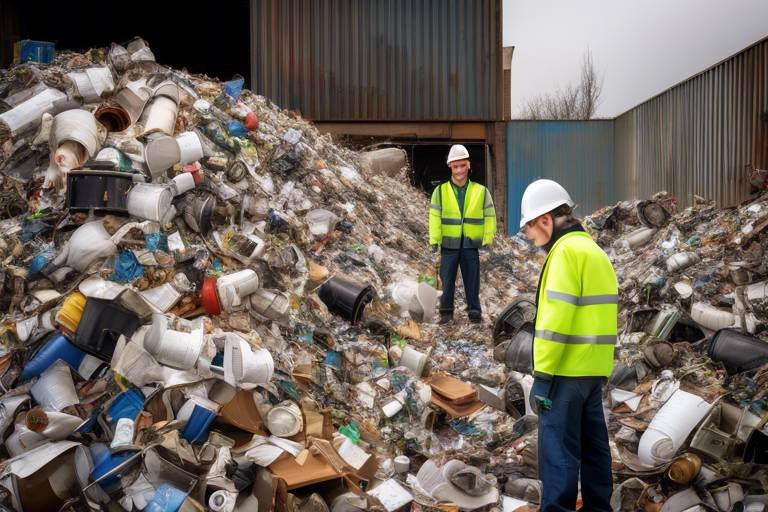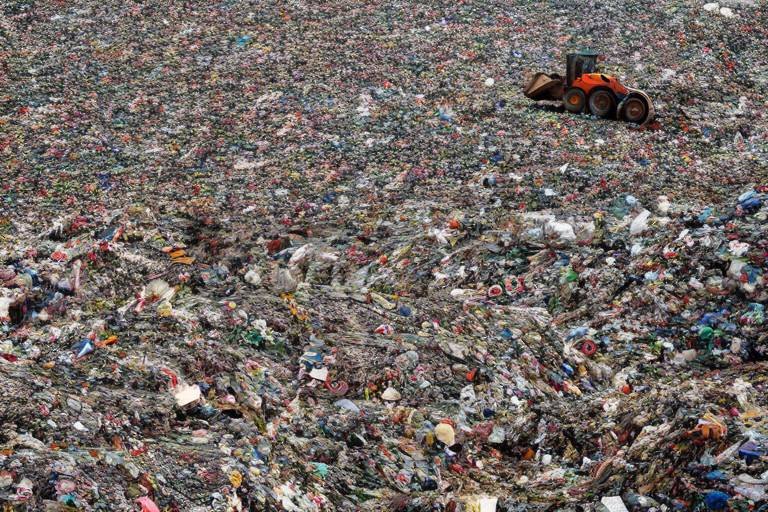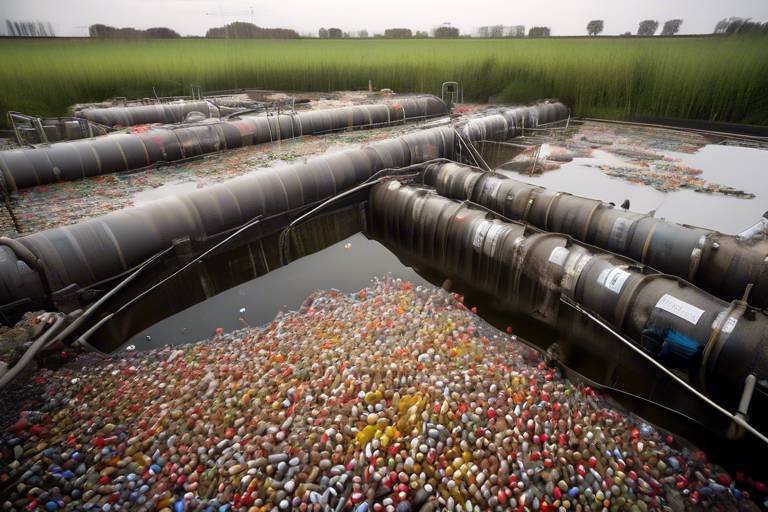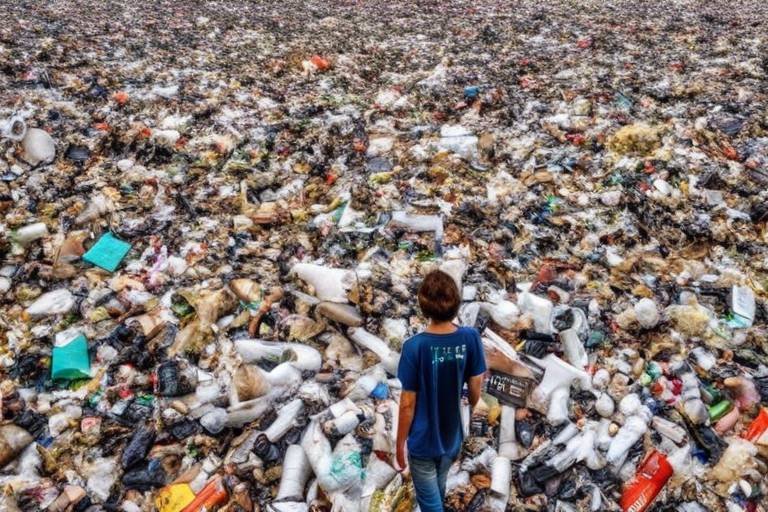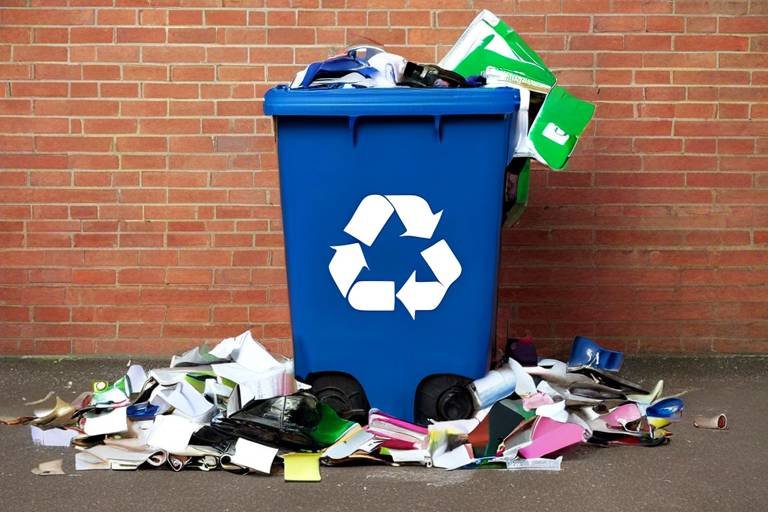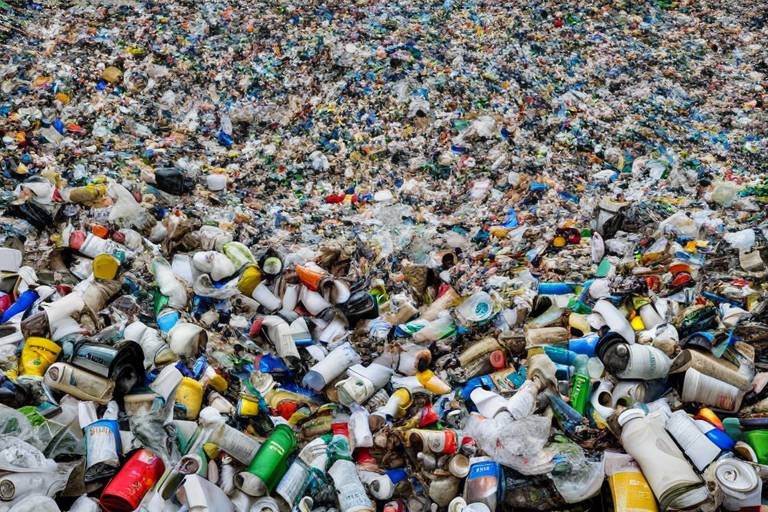The Economic Benefits of Community Recycling Initiatives
In today's world, where environmental concerns are at an all-time high, community recycling initiatives have emerged as a beacon of hope. They not only promote sustainability but also bring about a plethora of economic benefits that can transform local economies. Imagine a community where waste is minimized, resources are recovered, and job opportunities are created—all thanks to a concerted effort to recycle. This article dives deep into the various economic advantages that arise from these programs, highlighting their profound impact on local economies, job creation, and environmental sustainability.
One of the most significant economic benefits of community recycling initiatives is the job creation they foster. From the moment recyclables are collected to the intricate processes of sorting and processing, these programs require a workforce. Each stage of recycling—from collection to education—creates employment opportunities that are vital for local job markets. Not only do these jobs provide income, but they also enhance workforce skills. Workers gain valuable experience, making them more employable in various sectors. Furthermore, as the demand for recycling grows, so does the need for specialized roles, resulting in a diverse range of job opportunities.
Implementing recycling initiatives can lead to significant cost savings for local governments. The financial implications are substantial, as these programs help reduce waste management costs. By recycling, communities can allocate funds that would have gone to waste disposal towards other essential services and infrastructure projects. This reallocation of resources not only benefits the community financially but also enhances the quality of life for its residents.
One of the most pressing concerns for municipalities is the rising cost of landfill disposal. By diverting waste from landfills, communities can significantly lower their landfill disposal fees. This reduction in expenses translates to substantial financial savings that can be reinvested into community development. For instance, a town that implements a successful recycling program may find that it can save thousands of dollars annually, which could be redirected to improve public parks, schools, or local infrastructure.
Investing in recycling programs also allows municipalities to plan for long-term financial sustainability. By decreasing reliance on costly landfill expansions and waste transportation, local governments can create a more stable financial future. This proactive approach not only helps in managing current waste challenges but also prepares communities for future growth and sustainability.
Community recycling initiatives promote the recovery of valuable materials, which reduces the need for new resource extraction. This fosters a circular economy that benefits local businesses. For example, recycled materials can be used in manufacturing, leading to lower production costs and less environmental impact. This cycle of recovery and reuse not only supports local businesses but also contributes to a healthier planet.
Speaking of local businesses, community recycling initiatives provide them with recycled materials that can significantly reduce production costs. This not only enhances profit margins but also attracts environmentally conscious consumers. In a world where consumers are increasingly looking for sustainable options, businesses that embrace recycling can stand out in the marketplace. The ripple effect is profound—when local businesses thrive, the entire community benefits.
Recycling programs do more than just improve the economy; they foster community involvement and awareness. When residents participate in sustainability efforts, they strengthen social ties through collaborative initiatives. It’s about building a community spirit where everyone feels they have a role to play. This engagement is vital for fostering a sense of pride and responsibility among residents.
Many recycling initiatives include educational campaigns that inform residents about the importance of recycling. These outreach programs are crucial for increasing participation rates and improving overall recycling effectiveness within the community. When people understand the impact of their actions, they are more likely to engage in sustainable practices, leading to better outcomes for everyone.
Community recycling initiatives often create volunteer opportunities that allow residents to actively engage in sustainability efforts. Whether it’s organizing a community cleanup or participating in educational workshops, these opportunities foster a sense of community pride. Volunteers not only contribute to the success of recycling programs but also build lasting connections with their neighbors.
Finally, it’s essential to recognize that the environmental benefits of recycling contribute to economic growth. Improved public health, enhanced property values, and attracting businesses that prioritize sustainability are just a few of the positive outcomes. When communities prioritize recycling, they create a healthier environment that is appealing to potential residents and businesses alike. This, in turn, stimulates economic growth and enhances the overall quality of life.
- What are the main benefits of community recycling initiatives?
Community recycling initiatives lead to job creation, cost savings for local governments, support for local businesses, and increased community engagement.
- How do recycling programs save money for local governments?
By reducing waste disposal fees and decreasing reliance on landfills, recycling programs help local governments save money that can be redirected to other essential services.
- Can recycling initiatives really boost local businesses?
Yes! By providing recycled materials and promoting sustainable practices, recycling initiatives can help local businesses lower production costs and attract eco-conscious consumers.

Job Creation Through Recycling Programs
Community recycling initiatives are not just about reducing waste; they are a powerful engine for job creation within local economies. When a community invests in recycling programs, it opens up a plethora of employment opportunities that span various sectors. From the moment recyclables are collected to the intricate processes of sorting and processing, these programs require a diverse workforce. This creates jobs that are essential not only for the environment but also for the community's economic health.
For instance, consider the different roles that emerge from these initiatives:
- Collection Teams: These workers are responsible for picking up recyclables from homes and businesses, ensuring that materials are diverted from landfills.
- Sorting Facilities: Here, employees meticulously sort through the collected materials, separating plastics, metals, and paper. This process is crucial for ensuring that recyclables are processed correctly.
- Processing and Manufacturing: Recyclables are then transformed into new products, creating jobs in manufacturing facilities that utilize recycled materials.
- Education and Outreach: Many programs hire staff to educate the community about the importance of recycling, further enhancing public participation.
These jobs not only provide income but also enhance workforce skills. Employees in recycling programs often receive training in environmental management, logistics, and even engineering, which can lead to better career opportunities in the future. Moreover, the skills acquired through these roles can be transferred to other industries, creating a more adaptable workforce.
Additionally, recycling programs can stimulate the local economy by supporting ancillary businesses. For example, companies that produce recycling bins, transportation services for collected materials, and even those involved in the research and development of recycling technologies can thrive in a community that prioritizes recycling. This interconnectedness fosters a vibrant economic ecosystem.
In summary, the job creation potential of community recycling initiatives is significant. Not only do they provide immediate employment opportunities, but they also contribute to long-term economic stability and workforce development. By investing in these programs, communities can reap the benefits of a healthier environment and a more robust local economy.

Cost Savings for Local Governments
Implementing community recycling initiatives can lead to significant cost savings for local governments, a win-win scenario that not only benefits the environment but also bolsters municipal budgets. When communities actively participate in recycling, they reduce the volume of waste that must be sent to landfills. This reduction translates into lower landfill disposal fees, which can be a substantial expense for local authorities. Just imagine a city diverting thousands of tons of waste each year; the financial implications are enormous! These savings can be redirected toward essential community services such as education, public safety, and infrastructure projects.
Furthermore, by investing in recycling programs, municipalities can engage in long-term financial planning. Traditional waste management strategies often involve costly landfill expansions and the transportation of waste to distant facilities, which can strain local budgets. By reducing reliance on these expensive methods, local governments can allocate funds more effectively and sustainably. For instance, a town that embraces recycling might find itself in a position to invest in green technologies or community development projects that enhance the quality of life for residents.
One of the most immediate benefits of recycling is the reduction in landfill expenses. Landfills charge disposal fees based on the weight and volume of waste. As communities increase their recycling rates, they can significantly lower these fees. For example, a community that diverts 30% of its waste through recycling could save thousands of dollars annually. Here’s a simple breakdown:
| Waste Diverted (%) | Estimated Annual Savings ($) |
|---|---|
| 10% | 2,000 |
| 20% | 5,000 |
| 30% | 10,000 |
As shown in the table above, even a modest increase in recycling can lead to substantial savings that can be reinvested into the community. The trickle-down effect of these savings can enhance public services and improve the overall well-being of residents.
Moreover, recycling initiatives promote resource recovery and reuse, which is essential in fostering a circular economy. By recycling materials like metals, plastics, and paper, local governments can reduce the need for new resource extraction. This not only conserves natural resources but also minimizes the environmental impact associated with production processes. The economic benefits of this practice are twofold: it reduces costs for local governments while providing businesses with recycled materials at a lower price point. Local businesses can then pass these savings onto consumers, creating a thriving market for sustainable products.
In summary, the implementation of community recycling initiatives serves as a powerful tool for local governments. By reducing landfill expenses, engaging in long-term financial planning, and promoting resource recovery, municipalities can create a sustainable economic model that benefits everyone. It's a smart investment that pays dividends not just for today, but for future generations.
- What are the main financial benefits of recycling for local governments?
Recycling helps reduce landfill disposal fees, allowing local governments to save money that can be used for other community services.
- How does recycling impact local businesses?
Recycling provides businesses with access to recycled materials, which can lower production costs and attract environmentally conscious consumers.
- Can community recycling initiatives create jobs?
Yes! Recycling programs create jobs in collection, sorting, processing, and education, contributing to local job markets.

Reduction in Landfill Expenses
One of the most compelling economic advantages of community recycling initiatives is the significant . When communities actively engage in recycling, they are not just contributing to a cleaner environment; they are also making a savvy financial decision. Landfills can be incredibly costly, with expenses ranging from disposal fees to transportation costs. By diverting recyclable materials away from these sites, communities can markedly decrease their overall waste management expenditures.
Consider the following: when a community implements a robust recycling program, it can lead to a substantial decrease in the volume of waste that ends up in landfills. This reduction directly translates to lower disposal fees. For instance, if a town disposes of 1,000 tons of waste annually and manages to recycle 300 tons of that, the savings on disposal fees can be significant. Communities can then reinvest these savings into vital services such as education, public safety, and infrastructure.
| Waste Management Costs | Before Recycling Program | After Recycling Program |
|---|---|---|
| Annual Disposal Fees | $200,000 | $140,000 |
| Transportation Costs | $50,000 | $30,000 |
| Total Savings | $250,000 | $170,000 |
Moreover, with the rising costs of landfill expansions and the increasing pressure on municipalities to manage waste sustainably, investing in recycling programs becomes a strategic move. It not only alleviates the financial burden associated with landfills but also positions communities to be proactive rather than reactive when it comes to waste management.
In essence, the is more than just a budgetary concern; it’s about creating a sustainable future. By embracing recycling, communities are not only saving money but also fostering a culture of sustainability that can lead to further economic benefits down the line. The funds saved from reduced landfill expenses can be channeled into community projects, enhancing the overall quality of life for residents.
In conclusion, the financial implications of reducing landfill expenses through recycling initiatives are profound. Communities that prioritize recycling not only enjoy immediate savings but also lay the groundwork for long-term economic stability and environmental health.
- What types of materials can be recycled in community programs? Most community recycling programs accept paper, plastics, metals, and glass. It's best to check with your local program for specific guidelines.
- How can I get involved in my community's recycling initiative? You can participate by volunteering for local cleanup events, educating others about recycling, or simply by making an effort to recycle at home.
- What happens to the materials once they are recycled? Recycled materials are processed and transformed into new products, reducing the need for new raw materials and minimizing environmental impact.

Long-Term Financial Planning
When communities invest in recycling programs, they are not just making a choice for immediate waste management; they are laying the groundwork for long-term financial sustainability. Imagine a future where municipalities are less dependent on expensive landfill expansions and the constant transportation of waste. By prioritizing recycling, towns can significantly decrease these costs, allowing them to allocate funds to essential services such as education, healthcare, and infrastructure development.
Consider this: every ton of waste that is diverted from a landfill can save a community hundreds of dollars in disposal fees. According to recent studies, the average cost of landfill disposal can range from $30 to $100 per ton. By implementing effective recycling initiatives, communities can not only reduce these costs but also reinvest the savings into other critical areas. This creates a ripple effect, enhancing the overall economic health of the community.
Moreover, the initial investment in recycling programs can lead to substantial long-term savings. For example, municipalities that establish comprehensive recycling systems often find that they can reduce their waste generation by up to 30%. This reduction translates into fewer trips to landfills and lower transportation costs. In essence, communities are not just saving money; they are also creating a more efficient waste management system that can adapt to future challenges.
To illustrate the potential financial impact of recycling programs, let’s take a look at a hypothetical case study:
| Year | Cost of Landfill Disposal | Cost of Recycling Program | Net Savings |
|---|---|---|---|
| 1 | $100,000 | $40,000 | $60,000 |
| 2 | $95,000 | $35,000 | $60,000 |
| 3 | $90,000 | $30,000 | $60,000 |
This table shows that as the community becomes more efficient in its waste management practices, the costs associated with landfill disposal decrease while the recycling program remains stable or even declines. Over time, the cumulative savings can be substantial, allowing for reinvestment in community projects that enhance quality of life.
In conclusion, long-term financial planning through recycling initiatives is not just about saving money; it's about creating a sustainable model that benefits everyone. By prioritizing recycling, communities can ensure their economic health while fostering a cleaner, greener environment for future generations.
- What are the main benefits of community recycling programs? Community recycling programs help reduce waste, create jobs, save money, and promote environmental sustainability.
- How can recycling initiatives affect local economies? By generating jobs and reducing waste management costs, recycling initiatives can significantly boost local economies.
- What types of materials can be recycled? Commonly recycled materials include paper, plastics, metals, and glass, among others.
- How can residents get involved in recycling efforts? Residents can participate by educating themselves about recycling practices, volunteering for local initiatives, and actively recycling at home.

Resource Recovery and Reuse
Resource recovery and reuse are pivotal components of community recycling initiatives, acting as the lifeblood of a sustainable economy. By focusing on reclaiming valuable materials from waste, communities can significantly reduce the need for extracting new resources, which often comes with a hefty environmental cost. Imagine a world where the materials we use are continuously cycled through our economy, rather than being tossed aside after a single use. This is the essence of a circular economy, where resources are kept in use for as long as possible, extracting maximum value from them before recovery and regeneration.
When communities embrace recycling programs, they not only minimize waste but also tap into a treasure trove of reusable materials. For instance, items such as metals, plastics, and paper can be collected, processed, and transformed back into raw materials for local businesses. This process not only reduces the demand for virgin resources but also lowers production costs, making local businesses more competitive. As a result, the local economy thrives, creating a win-win situation for both the environment and the community.
Moreover, the financial implications of resource recovery are profound. Communities can save substantial amounts of money by diverting waste from landfills, which are costly to maintain. The table below illustrates the potential savings a community could achieve through effective recycling and resource recovery:
| Type of Material | Landfill Cost per Ton | Recycling Value per Ton | Net Savings per Ton |
|---|---|---|---|
| Metals | $150 | $300 | $150 |
| Plastics | $100 | $200 | $100 |
| Paper | $70 | $120 | $50 |
As you can see, the potential savings are not just numbers on a page; they represent real opportunities for communities to reinvest in critical services, such as education, healthcare, and infrastructure. By prioritizing resource recovery and reuse, communities can create a robust economic framework that supports local businesses while protecting our planet.
Additionally, the promotion of resource recovery fosters innovation. Local entrepreneurs are inspired to develop new products from recycled materials, which can lead to the creation of entirely new markets. Think about the rise of companies that specialize in upcycled products—everything from fashion to home goods. Each new venture not only contributes to the economy but also encourages a culture of sustainability that resonates with consumers who are increasingly conscious of their environmental footprint.
In summary, resource recovery and reuse are not merely buzzwords; they are essential strategies for building resilient, sustainable communities. By investing in recycling initiatives, communities can unlock financial savings, support local businesses, and create a healthier environment for future generations. So, the next time you toss something in the recycling bin, remember that you’re not just disposing of waste—you’re participating in a larger movement towards economic and environmental sustainability.
- What is resource recovery? Resource recovery refers to the process of reclaiming valuable materials from waste to be reused in production, reducing the need for new resource extraction.
- How does recycling benefit local economies? Recycling creates jobs, lowers waste management costs, and provides local businesses with affordable raw materials, ultimately boosting the economy.
- What materials can be recycled? Commonly recycled materials include metals, plastics, paper, glass, and electronics, among others.
- Can recycling really make a difference? Yes! Recycling conserves resources, reduces landfill waste, and lowers greenhouse gas emissions, contributing to a healthier planet.

Boosting Local Businesses
Community recycling initiatives are not just about reducing waste; they also play a pivotal role in . Imagine a world where businesses are not only profitable but also environmentally responsible. This is the reality that recycling programs help create. By providing local businesses with access to recycled materials, these initiatives can significantly lower production costs. For instance, instead of sourcing raw materials, companies can utilize recycled content, which is often cheaper and more sustainable. This shift not only saves money but also enhances the brand image, appealing to a growing demographic of environmentally conscious consumers.
Moreover, recycling initiatives foster a sense of community among local businesses. When companies collaborate on recycling efforts, they share resources, knowledge, and even customers. This collaboration can lead to innovative partnerships that drive economic growth. For example, a local furniture maker might team up with a recycling program to source reclaimed wood, creating unique products that tell a story while minimizing environmental impact. This synergy not only boosts sales but also enhances the overall community identity.
Additionally, recycling programs can attract new businesses to the area. Companies today are increasingly looking for locations that align with their sustainability goals. By having a robust recycling initiative in place, communities can position themselves as attractive hubs for businesses that prioritize environmental responsibility. This not only creates jobs but also stimulates the local economy. According to recent studies, areas with strong recycling programs have seen a notable increase in new business investments, further illustrating the economic benefits of these initiatives.
To illustrate the economic impact, consider the following table that summarizes the benefits of community recycling initiatives for local businesses:
| Benefit | Description |
|---|---|
| Cost Reduction | Access to cheaper recycled materials lowers production costs. |
| Brand Image Enhancement | Businesses can market themselves as eco-friendly, attracting more customers. |
| Community Collaboration | Local businesses can work together, sharing resources and knowledge. |
| Attracting New Businesses | A strong recycling program can lure companies that prioritize sustainability. |
In conclusion, community recycling initiatives are a win-win for local businesses. They not only provide cost-effective materials but also foster collaboration and attract new investments. As we continue to prioritize sustainability, it's clear that recycling is not just an environmental necessity; it's a powerful economic strategy that benefits everyone involved.
- How do recycling initiatives create jobs? Recycling programs require staff for collection, sorting, processing, and education, leading to job creation.
- What are the cost savings for local governments? By reducing waste disposal fees, governments can save money, which can be redirected to other community services.
- How do local businesses benefit from recycling? Businesses can reduce production costs and enhance their brand image by using recycled materials.
- Can recycling programs attract new businesses? Yes, companies looking for sustainable practices are more likely to invest in communities with robust recycling initiatives.

Increased Community Engagement
Community recycling initiatives do more than just keep our environment clean; they act as a catalyst for . Imagine a neighborhood where everyone is invested in making a positive impact—this is the essence of what recycling programs can foster. When residents come together to participate in these initiatives, they not only help reduce waste but also build stronger social bonds. It’s like planting seeds of collaboration that grow into a lush garden of community spirit. The act of recycling becomes a shared responsibility, creating a sense of belonging among participants.
One of the most effective ways these initiatives boost engagement is through educational outreach programs. These programs inform residents about the importance of recycling, not just for the environment but for the community’s economic health as well. Workshops, informational sessions, and community events serve as platforms where individuals can learn about sustainable practices. As people become more knowledgeable, they are more likely to participate actively in recycling efforts. This education transforms passive observers into enthusiastic participants, igniting a passion for sustainability that can spread like wildfire.
Moreover, community recycling initiatives often create volunteer opportunities. These opportunities allow residents to roll up their sleeves and get involved, whether it's through organizing collection drives, helping with sorting materials, or participating in community clean-up days. This hands-on involvement fosters a sense of pride and responsibility. When you see your neighbors working side by side, it’s not just about the trash being collected; it’s about building a community that cares. It’s like a team sport where everyone plays a vital role, and the victory is a cleaner, greener neighborhood.
Additionally, these initiatives can lead to the formation of local committees or groups focused on sustainability. These groups often serve as a platform for residents to voice their concerns, share ideas, and collaborate on future projects. By creating a network of engaged citizens, communities can tackle larger environmental issues together. It’s like forming a band—each member plays a unique instrument, but together, they create a beautiful symphony of action and change.
Furthermore, the engagement doesn’t stop at recycling. It can extend to other community activities, such as tree planting events, educational fairs, and sustainability workshops. When residents see the tangible benefits of their recycling efforts, they are more likely to participate in other community initiatives. This ripple effect can lead to a more vibrant, connected, and engaged community. It’s a win-win situation where everyone benefits from a shared goal of sustainability.
| Question | Answer |
|---|---|
| How can I get involved in local recycling initiatives? | Check with your local community center or environmental organization for volunteer opportunities and upcoming events. |
| What types of materials can typically be recycled? | Most communities accept paper, cardboard, plastics, metals, and glass, but it's best to check local guidelines. |
| Are there any costs associated with participating in recycling programs? | Generally, community recycling programs are free to participate in, but some specific events may have minimal fees for materials. |
| How does recycling benefit the local economy? | Recycling initiatives create jobs, reduce waste management costs, and support local businesses by providing recycled materials. |

Educational Outreach Programs
Educational outreach programs play a pivotal role in the success of community recycling initiatives. They serve as the backbone of awareness, informing residents about the significance of recycling and how their participation can lead to tangible benefits for both the environment and the economy. Imagine a neighborhood where everyone understands the impact of their waste; this vision becomes a reality through these programs. They are not just about recycling; they are about fostering a culture of sustainability that resonates throughout the community.
These programs often include workshops, informational sessions, and hands-on activities that engage residents of all ages. For instance, schools can integrate recycling education into their curricula, teaching children the importance of reducing waste from a young age. This not only empowers the younger generation but also encourages families to adopt sustainable practices at home. When kids learn about recycling in school, they often bring that knowledge back to their parents, creating a ripple effect of awareness and action.
Moreover, community events such as clean-up days and recycling drives can be organized to promote participation. These events provide an opportunity for residents to come together, learn from one another, and take direct action in their community. Not only do these initiatives educate, but they also foster a sense of community pride and responsibility. When people see their neighbors participating, they are more likely to get involved themselves.
To maximize the effectiveness of these educational outreach programs, it's essential to utilize various communication channels. Social media platforms, local newspapers, and community bulletin boards can be excellent tools for spreading the word. By using a mix of traditional and digital media, communities can reach a broader audience, ensuring that everyone is informed about upcoming events and the importance of recycling.
In addition, partnerships with local businesses can enhance these outreach efforts. For example, a local grocery store might sponsor a recycling education booth, providing materials and incentives for customers who bring in recyclable items. This not only educates the public but also strengthens ties between businesses and the community, creating a win-win situation.
Ultimately, the goal of educational outreach programs is to create an informed and engaged community that understands the value of recycling. By fostering awareness and encouraging participation, these programs help to increase recycling rates, reduce waste, and contribute to a more sustainable future. As the saying goes, "Knowledge is power," and in the case of recycling, it can lead to powerful changes that benefit everyone.
- What are educational outreach programs? Educational outreach programs are initiatives designed to inform and engage the community about the importance of recycling and sustainability.
- How can I get involved in local recycling education efforts? You can participate by attending community workshops, volunteering for clean-up events, or spreading the word on social media.
- Why is recycling education important? Recycling education is crucial because it raises awareness about waste management, encourages responsible behavior, and promotes environmental sustainability.
- Can schools participate in recycling outreach? Absolutely! Schools can integrate recycling education into their programs and host events to teach students about sustainability.

Volunteer Opportunities
When it comes to community recycling initiatives, one of the most rewarding aspects is the myriad of they create. These programs not only provide a way for residents to give back to their community but also foster a sense of belonging and shared responsibility. Imagine being part of a team that actively contributes to a cleaner environment while making new friends and learning valuable skills along the way. It's a win-win situation!
Volunteering in recycling initiatives can take various forms, from participating in cleanup events to assisting in educational outreach programs. For instance, volunteers might help organize community clean-up days where residents come together to collect litter and sort recyclable materials. This not only beautifies the neighborhood but also raises awareness about the importance of proper waste disposal. Additionally, volunteers can engage in workshops to educate others about recycling practices, sharing knowledge that can lead to improved recycling rates in the community.
Moreover, volunteering can provide individuals with practical experience that enhances their resumes. Many recycling programs offer training sessions that equip volunteers with skills in areas such as sorting materials, operating recycling machinery, and even public speaking. These experiences can be invaluable for students or job seekers looking to enter the environmental sector or any field that values sustainability. In fact, many local businesses look favorably on candidates who have demonstrated a commitment to community service and environmental stewardship.
To illustrate the impact of volunteering, consider the following table that highlights some common volunteer roles in community recycling initiatives:
| Volunteer Role | Description | Skills Gained |
|---|---|---|
| Cleanup Crew Member | Participate in community clean-up events, collecting litter and sorting recyclables. | Teamwork, organization, and environmental awareness. |
| Educational Outreach Volunteer | Assist in workshops and educational programs to inform the community about recycling. | Public speaking, teaching, and communication skills. |
| Sorting Facility Helper | Work at local recycling centers to help sort materials for processing. | Attention to detail, operational knowledge of recycling processes. |
In addition to the skills and experience gained, volunteering in recycling initiatives can lead to a deeper connection with the community. Residents often bond over shared goals and experiences, creating a stronger, more cohesive neighborhood. This sense of unity can be incredibly powerful, as it encourages more people to get involved in sustainability efforts, ultimately leading to a more environmentally conscious community.
So, if you’re looking to make a difference, consider volunteering in your local recycling initiatives. Not only will you contribute to a cleaner environment, but you’ll also gain valuable experiences, meet like-minded individuals, and play a crucial role in fostering a sustainable future for your community.
Q: How can I get involved in local recycling initiatives?
A: You can start by checking with your local government or environmental organizations to find out about upcoming volunteer opportunities in your area.
Q: Do I need any special skills to volunteer?
A: No special skills are required! Most programs provide training, and enthusiasm for making a difference is what matters most.
Q: What are the benefits of volunteering for recycling programs?
A: Volunteering can enhance your resume, provide networking opportunities, and give you a sense of fulfillment from contributing to your community.

Environmental Impact and Economic Growth
The relationship between environmental sustainability and economic growth is more intertwined than many realize. When communities invest in recycling initiatives, they are not just making a choice for cleaner streets or less cluttered landfills; they are also laying the groundwork for a healthier economy. Think of it as planting a seed. At first, it might just look like dirt, but with time, it can grow into a flourishing garden that yields a bountiful harvest for everyone involved.
One of the most significant environmental impacts of recycling is the improvement in public health. By reducing waste and minimizing pollution, communities can lower the incidence of health issues related to waste management, such as respiratory problems and other diseases. This not only leads to a healthier population but also reduces healthcare costs, freeing up funds that can be reinvested into local economies.
Moreover, cleaner environments often lead to enhanced property values. When neighborhoods are tidy and well-maintained, people are more inclined to live and invest there. A study conducted by the National Association of Realtors found that homes in green neighborhoods can sell for up to 10% more than those in areas lacking such initiatives. This increase in property values translates into higher property taxes, which can then be utilized to fund essential community services.
Additionally, communities that prioritize sustainability tend to attract businesses that align with these values. Companies today are increasingly looking to establish operations in areas that demonstrate a commitment to environmental responsibility. This creates a win-win situation: businesses gain a competitive edge by operating in a sustainable environment, and the community benefits from job creation and economic stimulation.
As we consider the broader implications of recycling, it’s essential to recognize the concept of the circular economy. This model emphasizes the continuous use of resources, minimizing waste, and maximizing value. Recycling initiatives are a cornerstone of this economy, allowing communities to recover valuable materials that can be reused in manufacturing processes. This not only reduces the need for new resource extraction but also fosters local businesses that can thrive on recycled materials.
To illustrate the economic growth potential from environmental initiatives, consider the following table:
| Benefit | Impact on Economy |
|---|---|
| Improved Public Health | Lower healthcare costs and increased productivity |
| Enhanced Property Values | Higher home sales prices and increased property tax revenue |
| Job Creation | New employment opportunities in recycling and sustainability sectors |
| Attracting Sustainable Businesses | Increased investment and economic activity in the community |
In conclusion, the environmental impact of community recycling initiatives goes hand-in-hand with economic growth. By fostering a cleaner, healthier, and more sustainable environment, communities can create a ripple effect that benefits not just the ecosystem but also the local economy. It’s a powerful reminder that when we take care of our planet, we are also taking care of our wallets.
- How does recycling contribute to economic growth?
Recycling reduces waste management costs, creates jobs, and attracts businesses focused on sustainability, all of which contribute to economic growth. - What are the health benefits of recycling?
Recycling helps reduce pollution and waste, leading to improved public health outcomes and lower healthcare costs. - Can recycling increase property values?
Yes, neighborhoods that prioritize sustainability and cleanliness often see higher property values as they become more desirable places to live. - What is a circular economy?
A circular economy emphasizes the continuous use of resources through recycling and reuse, minimizing waste and maximizing value.
Frequently Asked Questions
- What are the primary economic benefits of community recycling initiatives?
Community recycling initiatives bring a multitude of economic benefits, including job creation, cost savings for local governments, and support for local businesses. By promoting recycling, communities can generate employment opportunities in various sectors, reduce waste management expenses, and provide local businesses with access to recycled materials, ultimately fostering a more sustainable local economy.
- How do recycling programs create jobs in the community?
Recycling programs create jobs at multiple levels, from collection and sorting to processing and educational outreach. These initiatives require a workforce to manage the logistics of recycling, which not only helps to reduce unemployment rates but also enhances the skill sets of local workers, making them more competitive in the job market.
- Can recycling initiatives save money for local governments?
Absolutely! Implementing recycling programs can significantly cut down on landfill disposal fees, which are often a major expense for local governments. The money saved can then be redirected toward other essential community services and infrastructure projects, thereby improving overall community welfare.
- How do recycling initiatives contribute to a circular economy?
Recycling initiatives promote a circular economy by recovering valuable materials that can be reused in production processes. This reduces the need for new resource extraction, minimizes waste, and encourages sustainable practices among local businesses, ultimately benefiting the environment and the economy.
- What role does community engagement play in recycling programs?
Community engagement is crucial for the success of recycling programs. When residents participate in sustainability efforts, it strengthens social ties and fosters a sense of community pride. Educational outreach campaigns also help inform the public about the importance of recycling, leading to higher participation rates and improved recycling outcomes.
- Are there volunteer opportunities available in community recycling initiatives?
Yes, many community recycling initiatives offer volunteer opportunities. These programs allow residents to actively participate in sustainability efforts, fostering a sense of responsibility and pride in their community. Volunteering can also be a rewarding way to meet like-minded individuals who are passionate about environmental issues.
- What is the environmental impact of recycling on economic growth?
Recycling has a positive environmental impact that can drive economic growth. By improving public health and enhancing property values, communities that prioritize recycling become more attractive to businesses that value sustainability. This, in turn, can lead to increased investment and economic development within the area.



